
As a church leader, investing in a church bus probably isn’t something you do every day. Moreover, bus maintenance and operation procedures might not be the most familiar territory, either.
That is why we enlisted a group of leading church transportation experts — from insurers, to dealers, to bus manufacturers — to help you select the right bus for your church and ensure that bus operation and maintenance are as safe and risk-free as possible.
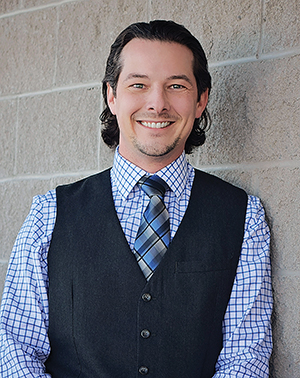
Vice President of Sales & Marketing
Davey Coach Sales
Are there certain types of vehicles that are the “safest bets” for churches?
Josh Davey: When safety is a primary concern, a Multi-Function School Activity Bus (MFSAB) is the best option, because it undergoes the most rigorous safety testing.
The challenge with a church is that there are multiple groups using a bus for different reasons. For example, if you have a senior outreach program, an MFSAB may not be the solution because it will have less comfortable seats and a low ceiling — great for kids, but not comfortable for adults.
If you buy a used bus, consider where the bus spent its previous life. For example, buses from the east coast generally have higher rates of rust and corrosion. It’s also important to consider how a bus was used.
Ryan Lamb: The cheapest price most likely won’t deliver the safest bus. Research what you’re buying. There are a lot of different bus manufacturers which use many different construction methods to achieve the same type of bus. Some designs go above and beyond the minimum safety testing. We have several of those brands and models in our portfolio. We manufacture multiple bus brands that exceed exceeds the minimum safety testing required by our industry. We also manufacture the World Trans Bus brand, the only
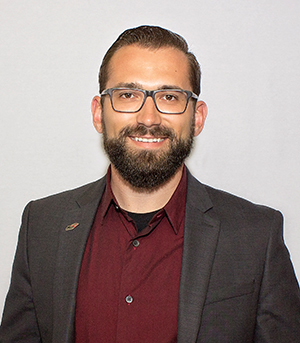
Regional Sales Manager
REV Bus Group
cutaway bus that has passed both ECE.R 66 Rollover Crash Worthiness and FMVSS 221 Side Impact Protection testing. Both of these tests are above and beyond the minimum test requirements for buses in this market segment.
Bob Anderson: Churches should consider buses that are built with a steel cage frame for the body and dual rear wheels for the chassis. The reality is, van-type transportation doesn’t have the same kind of protection around the passenger area. The steel frame on a bus is in between each window and it extends over the top. Most vans are single-rear-wheel in the back, but buses have a dual-rear-wheel design. This means more rubber on the road and more stability.
Scott Harkins: From an insurer’s perspective, we think buses — even mini-buses — are a much safer option than 15-passenger vans. Buses are built to safely carry passengers. Larger buses are designed to protect passengers by compartmentalization. As Bob said, they have steel cage construction and side impact beams. They’re much safer than most typical vehicles on the road — and they provide stability control.
Also, if a church is looking to buy a bus for transportation, the first thing church leaders

Director of Commercial Sales
Midwest Transit Equipment
should consider is who’s being transported. If a church has an elderly congregation, does it need a bus that’s able to accommodate a wheelchair?
Different buses are better for different things, whether you’re picking up all preschoolers for daycare, or if you’re providing Sunday transportation for the congregation.
Is a new bus a better investment than a used bus?
Lamb: Most buses have a useful life of five to seven years. So, if you’re buying a used bus that’s already got five years since the manufacture date, it’s essentially outside of its useful life. Expect to start replacing everything from body components to panels to expensive mechanical parts of the bus.
We do have a financial division, and we offer lease and rental buses to churches. That gives churches the opportunity to lease a new bus, do a three-year walk-away lease, and return that bus and get a brand-new bus from one of our REV Bus Group dealer partners.
Anderson: The obvious advantage of a new bus is the warranty. However, used buses (with low miles) can provide great value. Many companies also offer no-money-down leasing; that way, churches can establish a very predictable expense for their
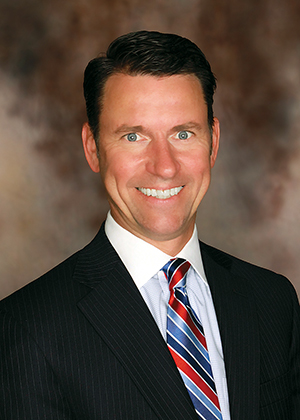
President
Glatfelter Religious Practice
transportation. We’re seeing more and more churches lease. It really depends on each church and where they are financially.
Shawn Yingling: From a risk perspective, a new bus is absolutely a better investment. From a cost-benefit perspective, maybe or maybe not. New buses have the newest safety features. Every time there’s an accident, we learn something from that accident. Bus manufacturers are no different; if there’s an issue that they can correct to make their product safer, they’ll do that.
If you’re going to buy used, don’t do so until you’ve had a qualified mechanic go through that bus to make sure that it meets all the state requirements and is in good operating condition.
Davey: The brand of bus is a driving factor for this answer. It’s very similar to how consumers view a pre-owned Toyota as lasting longer than a domestic vehicle. A long-lasting foundation, coupled with a thorough reconditioning program, allows many of Davey Coach’s preowned buyers to get the best of both worlds.
What do churches need to know about driver requirements?
Harkins: If a vehicle has 16 passengers or more, or 26,000 pounds — a bus typically is 16-passenger or more — the individual must have a Commercial Driver’s License or CDL.
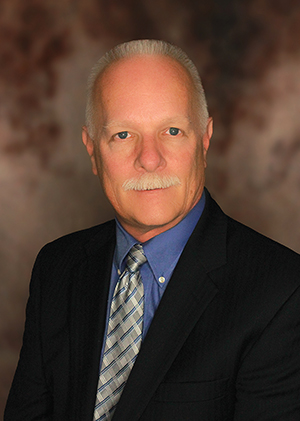
Senior Vice President CFU, CPCU, ARM
Risk Control Services
Glatfelter Insurance Group
That’s a real positive, from our [insurance] perspective, because not only have those drivers demonstrated knowledge of that bus, they must have a passenger endorsement on it.
Anderson: Most insurance companies require that the driver be at least 21 years old.
In most states, a vehicle that seats 15 or fewer (total) does not require a CDL to operate. A 15-passenger bus is extremely easy to drive.
Davey: State licensing requirements are the same, generally, with the exception of California.
It’s important to note that just because a CDL may not be required, every bus over 10,000 pounds is required to comply with commercial vehicle requirements (e.g., log book; a Department of Transportation, or DOT, inspection).
Lamb: As Scott and Bob said, as long as the bus is under 14 passengers — plus the driver — a CDL isn’t required. So, that means anyone can drive the bus, just as long as they’re comfortable driving a vehicle that’s larger than a typical passenger car!
Regarding bus maintenance, what are the most common pitfalls to avoid?
Yingling: The biggest issue that we see isn’t a maintenance issue; it’s a lack of doing the maintenance. It’s important that somebody is assigned to the role. They don’t necessarily have to be called a ‘fleet manager,’ but there should be somebody who assumes that role, where they’re responsible for making sure every one of their vehicles — buses included — are getting the manufacturer-recommended preventative maintenance, at a minimum.
This should also be the person who handles any work orders or issues that are found during the driver’s pre- or post-trip inspection.
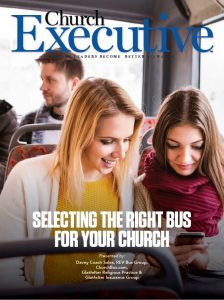
Lamb: Shawn is right: the most common pitfall to avoid is not maintaining the bus. Churches use the buses, but they don’t necessarily have a garage to maintain the bus themselves. So, maintenance often gets pushed to the side.
REV Bus Group has an exclusive partnership with Ryder that now allows a customer to include a maintenance plan with their vehicle purchase, lease or rental. So, we can actually include in a lease payment a preventative maintenance plan, which is serviced by Ryder Truck. They have more 450 locations across the U.S. That essentially lets customer get out of owning a bus, to where they’re paying a monthly fee for the lease, which also includes the preventative maintenance plan. With the combination of Ryder service centers and the REV Bus Group dealer network, there are more than 600 locations where churches can have their REV buses serviced and maintained.
Davey: The DOT inspection is the No. 1 thing we see churches miss. The purpose of a DOT inspection is two-fold. First and foremost, it’s required by law, with the penalty of a fine and the inability to operate it until it has been inspected.
Second, a DOT inspection helps catch problems before they escalate. A rattle here or there or a seam in the body can become a costly repair down the road that might even put the bus out of commission, as it’s being repaired.
Anderson: Not keeping accurate maintenance records is a common pitfall. We recommend a check-out / check-in process for each time the bus is used. That way, miles can be tracked and maintenance can be updated.
Churches with the best longevity for their buses have a clipboard and a checklist. Before anyone starts the bus, they check the tires and the oil, and they go through the checklist. When they bring the bus back, there’s a “return” checklist. Before they turn in the keys, they check for damage — a chipped windshield, for example — so there’s a record. Then, the church looks through the checklists once a week or a once a month to see what needs to be done to maintain the buses.

Under what circumstances is it better for the church to maintain the bus itself?
Davey: I don’t run across many churches with bus maintenance capabilities, such as changing oil or rotating tires. In fact, I’ve never found a church that’s certified to do its own DOT inspection. They might be capable, but not qualified.
Anderson: Some churches have people in the congregation who make their livings as mechanics. It makes a lot of sense for those people to be able to use their gifts and talents in order to save the church money.
If this type of person is not available for maintenance, then I feel that the bus dealership or local Ford dealership is the best answer.
Harkins: We frown on all the work being done in-house, unless the church has people who’ve been certified by the manufacturers to work on those buses. From our perspective as an insurance company, we think it’s very important that someone who specializes in buses does the maintenance and repair work. They’re doing it every day, all day, and they’re more likely to be doing it correctly.
If a church does outsource its bus maintenance, what’s your advice for selecting a provider?
Lamb: Our partnership with Ryder is one good solution. We can get bus owners preapproved to either bring their bus in an on-demand scenario when they have an issue, or in a preventative maintenance scenario, when the bus is on a service schedule.
Anderson: Common sense would say that if the bus has, for example, a Ford chassis, you’d take it to a Ford dealer. The cost per hour is often higher than another type of shop; however, they know their product and can often diagnose issues quicker. So, if the bus dealership is nearby, that’s always the best option.
Davey: Be sure your choice for bus maintenance services similarly-sized vehicles. A standard vehicle service department may not have the knowledge and tools to address all aspects of bus maintenance.
Who in the church should monitor warranties and scheduled maintenance due dates?
Davey: It’s tough to say, as every church has different staff with different priorities. For a smaller church, it may fall to an administrative department. For larger churches, there may be a department dedicated to maintenance. Either way, maintenance reminders for those buses can easily be scheduled in a calendar, or simply call your service provider and get your service appointments pre-booked for the year leading up to the annual DOT inspection.
Lamb: If the church has a maintenance person who tracks the facility’s warranties and maintenance schedules, the bus could be covered by that same person. He or she can keep track of when it needs to be serviced, and things of that nature.
Anderson: I agree with Ryan. If a church has a full-time building and maintenance staff, anyone on that staff can handle this. You can also have your church business administrator do it; anyone who is professional and will keep accurate records.
Yingling: It depends on the size of the church. Bigger churches naturally would have bigger fleets. Churches that have a need for a fleet would have a risk manager or somebody dedicated not only to the buses, but probably to the maintenance of the property. Bigger churches will have dedicated personnel. A smaller church may have a council, or it may be the pastor himself monitoring warranties and scheduled maintenance due dates.
What regulatory considerations must a church consider — especially when crossing state lines, etc.?
Davey: As always, check with your insurance carrier with questions. But, as of January 2018, Electronic Logging Devices (ELDs) are required in all commercial vehicles. In Colorado, that limit is 16,000 pounds.
Lamb: If the church is purchasing or leasing a bus from one of our dealer partners, it’s going to be constructed for use and inspection in that state. If the church is ordering a bus in New York, it would be built to New York local standards. An ELD would be applicable to a CDL vehicle, so more than 15 passengers.
Anderson: Regulatory considerations vary from state to state. We always tell people, ‘Be sure to check with your state DMV for what regulations apply to you.’ There can even be different regulations for different types of churches — if you have a daycare attached to your church, for example.
Are there other risks related to church bus selection, management or maintenance that should be considered?
Davey: In our industry, you definitely get what you pay for. As a consumer, I like options. Ours is an independent dealership representing more than 15 manufacturers, with a wide range of quality selections to choose from. We take the time to get to know you, your requirements, likes and dislikes, and budget to present you with the best information available, so you can make the most informed decision possible. We offer a custom-tailored solution.
Lamb: When you’re considering a church bus selection, I would ask questions about the safety testing of the bus body itself. Does it meet the bare minimum, or does it place an emphasis on safety? That’s what we’re doing with our manufacturing methods; we’re trying to break the mold of designing vehicles that meet only the minimum FMVSS safety testing requirements. We want to offer the safest buses in the industry.
Anderson: Safety features included on the bus itself are very important. Be sure that the company has not tried to save money by skimping on safety features, such as: side marking lights; rear center brake light; high-visibility step nosing; interior LED lighting; dual entry hand rails; retractable seat belts; and so on.
Harkins: My advice pertains to driver selection; checking to make sure a driver has a CDL is important. However, a CDL can be suspended if the driver exceeds a certain number of moving violations, so check motor vehicle records as part of your background check on hiring drivers, too.
As an insurer, we also don’t like a church lending out its bus or renting its bus out for outside-the-church purposes.
— Reporting by Joyce Guzowski


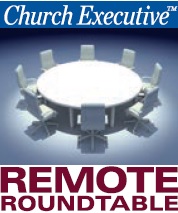

Thanks for the tip to get a Multi-Function School Activity Bus because of how safe it is. This would mean that people would be a lot safer when traveling around. It would also mean that the repairs are essential to ensure that it stays safe.
I like how you said that the biggest maintenance issue with owning a bus is the lack of someone actually doing it. I think this is a good reason to also just rent a bus. Then you never have to deal with missing a maintenance appointment ever again.